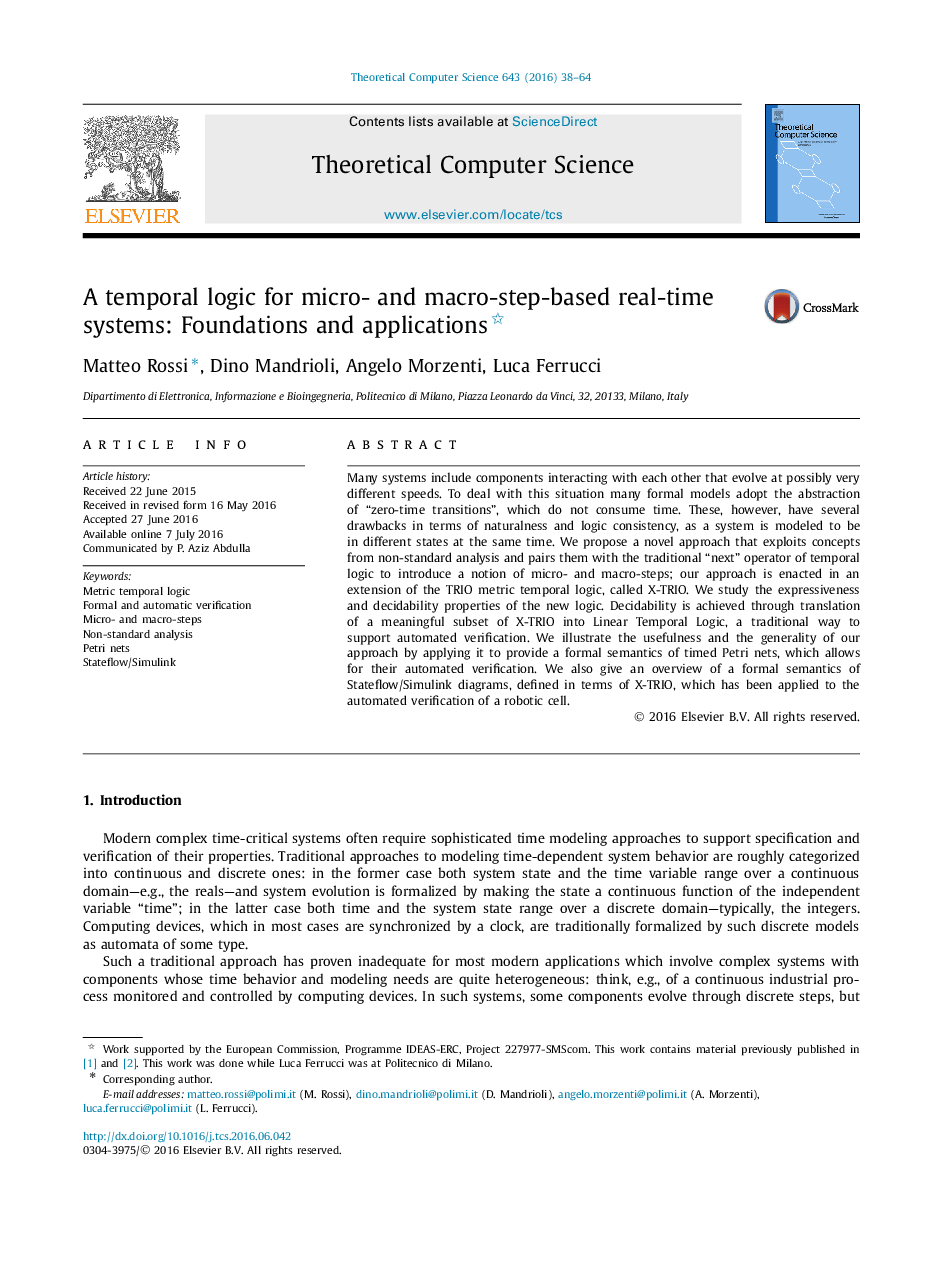| Article ID | Journal | Published Year | Pages | File Type |
|---|---|---|---|---|
| 437367 | Theoretical Computer Science | 2016 | 27 Pages |
Many systems include components interacting with each other that evolve at possibly very different speeds. To deal with this situation many formal models adopt the abstraction of “zero-time transitions”, which do not consume time. These, however, have several drawbacks in terms of naturalness and logic consistency, as a system is modeled to be in different states at the same time. We propose a novel approach that exploits concepts from non-standard analysis and pairs them with the traditional “next” operator of temporal logic to introduce a notion of micro- and macro-steps; our approach is enacted in an extension of the TRIO metric temporal logic, called X-TRIO. We study the expressiveness and decidability properties of the new logic. Decidability is achieved through translation of a meaningful subset of X-TRIO into Linear Temporal Logic, a traditional way to support automated verification. We illustrate the usefulness and the generality of our approach by applying it to provide a formal semantics of timed Petri nets, which allows for their automated verification. We also give an overview of a formal semantics of Stateflow/Simulink diagrams, defined in terms of X-TRIO, which has been applied to the automated verification of a robotic cell.
